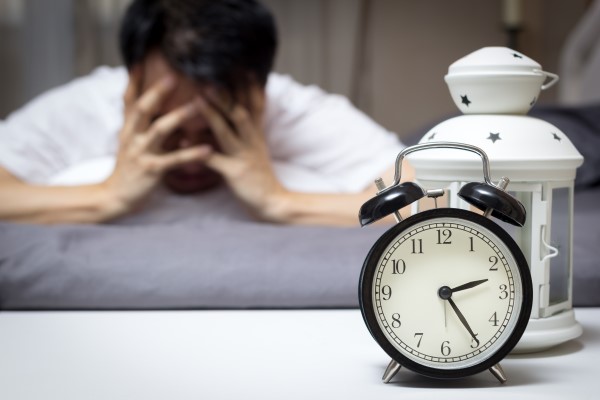Do Dentists Recommend Tongue Exercises for Sleep Apnea?

Sleep apnea is a condition that leads to interruptions in a person's breathing during sleep. It can be caused by soft tissues in the mouth getting into the airways during sleep or the jaw being at an angle that restricts breathing. Many people who snore do so as a result of sleep apnea.
Sleep apnea might seem like a minor issue, but it is far from it. It prevents people who have it from getting restful sleep and they often wake up feeling tired and lethargic. People with sleep apnea are more likely to develop health conditions like heart disease and high blood pressure. They are also more susceptible to depression and other mental health issues.
Fortunately, exercising the tongue can help to alleviate sleep apnea. Some cases are caused by the person's tongue falling into their airways during sleep and exercise is an effective way to train the tongue to stop doing that.
How exercising the tongue helps with sleep apnea
Obstructive sleep apnea is caused by tissues in the mouth blocking a person's airways when they sleep. As a result, the person has interruptions in their breathing during sleep, forcing them to wake up momentarily to restore their breathing. These interruptions occur many times during sleep, preventing them from getting prolonged sleep.
One of the main causes of obstructive sleep apnea is the person's tongue over-relaxing, falling into the back of the throat and blocking the airways. Strengthening the tongue helps to keep it in the proper resting position when sleeping. Research shows that these treatments work and they can help people with moderate sleep apnea to minimize their symptoms. It can even prevent the need for a CPAP machine, which is used to treat moderate to severe sleep apnea.
Adults and children alike can benefit from strengthening their tongue if they have obstructive sleep apnea. The process is called oral myofunctional therapy (OMT) and it involves having a professional that understands the intricacies of the tongue assessing how the patient's orofacial structures work together. The therapist will craft a treatment plan that addresses the behavior of the patient's tongue.
The therapist will show the patient exercises that will teach their tongue to stay in its proper resting position during sleep. Strengthening the tongue can also make it easier to breathe and to swallow during the day. The benefits that come with this approach to treating obstructive sleep apnea include:
- It is an inexpensive treatment option
- Treatment can be provided remotely via teletherapy
- It is a non-invasive treatment option
- It can negate the need for surgical treatments
Get the sleep apnea treatment you need
Dealing with obstructive sleep apnea? Contact our Bellevue clinic to learn more about how exercising your tongue can help to reduce the symptoms of sleep apnea. We also provide oral appliances that can help to keep your tongue in the proper position while you sleep.
Request an appointment here: https://artisandentalbellevue.com or call Artisan Dental at (425) 454-2005 for an appointment in our Bellevue office.
Check out what others are saying about our services on Google: Read our Google reviews.
Related Posts
A smile makeover can be achieved with the help of one procedure or several. What a dentist recommends depends on the attributes of your smile you would like to change. To give you a better picture of some treatments that can transform a smile, take a look at these five popular treatments.Slight to moderate misalignments…
Considering a smile makeover and not sure where to start? Read on to learn more. Many people avoid smiling due to dental imperfections. A smile makeover may be the answer. A dentist can improve your smile with cosmetic procedures like teeth whitening, bonding, and veneers. The right professional for the treatment is the key to…
A smile makeover treatment can target dental stains and discoloration. Some of them affect the surface, while others penetrate the deeper layers of the mouth. A full evaluation can determine the right procedure to correct this cosmetic dental issue. Here are the common smile makeover options you should consider for your discolored or stained teeth.Despite…
A smile makeover aims to improve the overall look of your smile. Therefore, it may involve one or a series of treatments to address multiple aspects of your smile's appearance. If there are a number of things you would like to change about how your smile looks, consider a smile makeover. Here is a closer…









